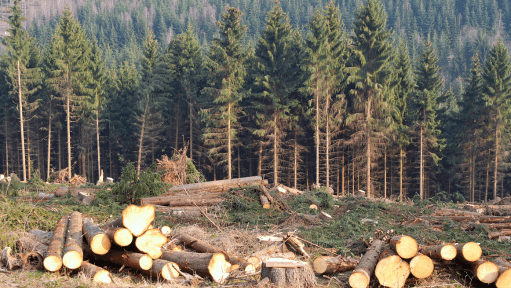
EU Deforestation Law Delay Hurts Vigilant Companies: Financial Losses and Environmental Impact
Proactive Companies Face Financial Strain as EU Postpones Enforcement of Critical Regulation Against Illegal Deforestation
The postponement of the European Union's deforestation law, designed to combat illegal deforestation tied to products like palm oil, soy, and beef, is financially harming companies that have proactively implemented sustainable measures in their supply chains. These businesses, which bear the cost of compliance, face an uneven playing field, as competitors without such measures continue operations without consequence. The delay hampers environmental protection efforts, frustrating industry leaders and stakeholders who warn that it undermines the EU’s climate goals and credibility on sustainability.
EU Deforestation Law: Background and Delay
The EU deforestation law, adopted in 2023, aims to restrict products associated with deforestation from entering the EU market. The regulation targets key commodities like palm oil, beef, coffee, and timber, which have significant links to illegal deforestation in tropical countries. It requires companies to ensure that their supply chains are free from deforestation and forest degradation before allowing goods into the EU market.
However, the law’s enforcement has been delayed due to logistical issues, including the need to develop specific rules for compliance and monitoring. This delay is having unintended consequences, especially for companies that have taken early action to align their operations with the forthcoming regulation.
Financial Losses for Proactive Companies
Many environmentally-conscious companies, eager to comply with the regulation, have invested heavily in sustainable supply chain practices. These companies anticipated that their proactive stance would give them a competitive advantage once the regulation was enforced. They implemented measures like satellite monitoring, traceability systems, and partnerships with local producers to ensure their products are deforestation-free.
However, with the law delayed, the financial burden of these efforts is mounting. These companies are incurring higher operational costs due to their sustainability initiatives, but are not reaping any regulatory or market rewards for their foresight. In the absence of enforcement, competitors that have not adopted such measures are able to sell their products at lower costs, creating an unfair market environment.
This situation is leading to significant financial strain for the more responsible companies, as they are unable to capitalize on their investments in sustainability. Moreover, the delay undermines consumer trust in the EU's commitment to addressing global deforestation and climate change.
Impact on Global Deforestation Efforts
The EU deforestation law is considered a critical tool in the fight against global deforestation, which contributes significantly to climate change and biodiversity loss. Tropical forests in countries like Brazil, Indonesia, and the Democratic Republic of Congo are rapidly disappearing, primarily due to the expansion of agriculture for commodity production. The law is expected to curb this destruction by holding companies accountable for the environmental impact of their supply chains.
However, the delay in implementation means that deforestation continues unchecked, as companies that are not yet compliant with the regulation are still able to operate without repercussions. Environmental groups warn that every day of delay results in more forest loss and greater damage to ecosystems and communities that depend on them.
Moreover, the lack of immediate enforcement sends a mixed message to companies and governments in producing countries. Without clear signals from the EU, there is less incentive for these countries to improve their environmental governance or for companies to invest in sustainable practices.
The Call for Immediate Action
Industry leaders, environmental groups, and vigilant companies are urging the EU to accelerate the law’s implementation. They argue that the delay is undermining the credibility of the EU’s environmental policies and threatening its ability to meet its climate goals.
Experts also stress that early action is crucial for establishing a level playing field in the market. Delaying the law disproportionately affects responsible businesses, while those that have not made sustainability commitments continue to benefit. Swift enforcement would help correct these market imbalances and reward companies that have made investments in sustainable practices.
Additionally, environmental advocates highlight the urgency of addressing deforestation to meet the EU’s broader climate targets, particularly in light of the 2030 Agenda for Sustainable Development and the Paris Agreement commitments. The EU has positioned itself as a global leader in environmental sustainability, but delays like this threaten to erode its leadership role.
Conclusion
The delay in the EU deforestation law's implementation is causing substantial financial losses for companies that have invested in deforestation-free supply chains, while also allowing unsustainable practices to persist. For the EU to maintain its leadership in climate action and ensure a level playing field, swift enforcement of the law is essential. The delay not only harms proactive businesses but also undermines global efforts to curb deforestation and combat climate change. Immediate action is needed to protect forests and the companies committed to preserving them.
For any enquiries or information, contact ask@tlr.ae or call us on +971 52 644 3004. Follow The Law Reporters on WhatsApp Channels